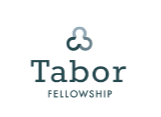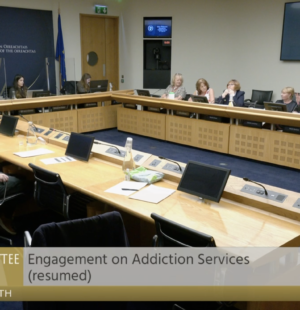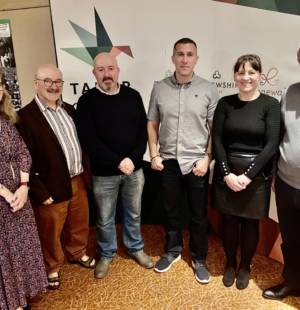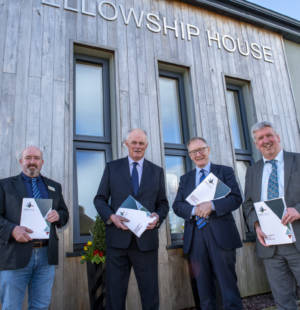How to prevent addiction damaging your relationship

Addiction takes control and can destroy everything in someone’s life, including the relationships they have with friends, loved ones and everyday encounters with people.
When addiction takes hold of the main pleasure-centre of the brain, relationships can often fall by the wayside. With Valentine’s Day close by, we should take the time to assess our romantic relationships and find ways of preventing irreparable damage.
Deception and lies
One of the most common frustrations people have with their loved one who is battling an addiction is the level of secrecy involved in their daily lives.
When someone begins to centre their lives around drugs, or alcohol, or gambling, they may not be aware of how much they are spiralling out of control. At a certain point, when and if they’ve realised how bad their addiction has got, they will experience feelings of shame and guilt. This causes people to become very secretive about their activities and overall state of being.
Little white lies that seem harmless start turning into bigger deceptions, sometimes leading a person to live a double life to cover up their addictive behaviour. The biggest motivating factor is fear of judgement. Many people will isolate themselves from people who know them best, in order to cover their lies and addiction.
Loss of trust
A natural result of dealing with someone’s constant lies is a loss of trust. Deception, secrecy and unexplainable distancing from someone who may be dealing with addiction can quickly rob the relationship of trust and respect.
When these feelings fester, they erode a relationship from the inside out. Romantic relationships can be most damaged by addiction for reasons of distrust, especially when issues of jealousy, possessiveness and fear are not discussed productively.
Often, people who are in the grips of addiction don’t have the energy or desire to spend on relationships, or people, who are not related to their chosen drug. Trust is an essential part of any relationship, whether it is romantic or not. Once trust is lost, it’s challenging for someone with an addiction to maintain relationships without seeking treatment.
Violence and abuse
An incredibly traumatic effect that addiction can have on relationships is domestic violence. Much displaced anger and growing resentment in a relationship where alcohol or drugs are involved can bubble up and explode in violent ways.
If someone is using substances that can cause aggressive behaviour; small fights can quickly ignite and turn into uncontrollable rage. Those living with people who are addicted to substances that can lead to wildly volatile behaviour are at severe risk for victimisation, along with any other family members or children living in the home.
In turn, the violence can also be exhibited by the person in the relationship who is clean. They are angry at the person with addiction for their disease and are acting out their anger in abusive ways. Both situations are unfortunately common and are not always dealt with properly, causing many to suffer in silence due to shame and fear.
Enabling relationships
When someone loves or cares for a person with an addiction, their love can sometimes cloud their judgement. It’s not uncommon for loved ones to try to “help” the person with the addiction, but in ways that end up enabling the person to continue.
Typical enabling behaviours include taking over responsibilities and feelings of the loved one with an addiction, working to minimise negative consequences for the person struggling with addiction, taking on blame for someone else’s addiction, and making excuses for poor behaviour. The fine line between helping and hurting can be very difficult for all people involved.
Co-dependent relationships
Co-dependent relationships are always one-sided. Someone who is co-dependent on a loved one with addiction may be suffering because of the effects of the addiction, but also enjoys being “caretaker” for that person. They enjoy the feeling of being needed, or that the person with addiction comes to them for help.
There’s only one way to save this relationship
Does this mean you have to let the person go? Sometimes yes, and sometimes no.
You may be able to motivate someone who is an addict to receive help, and you can go through this process together in some ways, but not every addict will accept help and go through treatment. Also, if you’re in a relationship with an addict who’s physically harmful to you, you may have no other choice than to leave.
Many people who are in a relationship with a drug addict or alcoholic set boundaries, and ultimately find that when the addict doesn’t adhere to these, they have to end the relationship.
Getting help
Luckily, for addicts who do agree to treatment, relationships may be salvageable. Getting help with an addiction is nothing to be ashamed of. As with any chronic disease, medical intervention is necessary for the individual to regain a healthy life. The range of treatment options available today are designed to rehabilitate any level of addiction.
When it’s time to talk to a loved one about getting help, addiction treatment professionals stress the importance of a non-confrontational environment and one where the individual is also sober. Likewise, a “tough love” method may push loved ones even further away.
Emphasising concern for a loved one, avoiding judgment and keeping an open dialogue are the best ways to approach a conversation about getting help.
Tabor Group
Tabor Group is a leading provider of residential addiction treatment services in Ireland. We provide support and care to hundreds of clients suffering from addictions to alcohol, substances, gambling and eating disorders. For more information on Tabor Group’s services click here
Recent Posts
- How to Help a Loved One Struggling with Addiction
- Tabor Group Calls for Urgent Funding to Address Growing Addiction Crisis
- Forgiveness in Recovery
- National Drugs Strategy launches interactive map to facilitate access to 442 publicly-funded drug treatment
- Statement from Colette Kelleher, CEO Tabor Group
Categories
Archives
- September 2024
- July 2024
- June 2024
- January 2024
- December 2023
- August 2023
- July 2023
- May 2023
- April 2023
- March 2023
- January 2023
- October 2022
- September 2022
- August 2022
- July 2022
- June 2022
- May 2022
- April 2022
- March 2022
- February 2022
- January 2022
- December 2021
- November 2021
- October 2021
- September 2021
- August 2021
- July 2021
- June 2021
- May 2021
- April 2021
- March 2021
- February 2021
- January 2021
- December 2020
- November 2020
- October 2020
- September 2020
- August 2020
- July 2020
- June 2020
- May 2020
- April 2020
- March 2020
- February 2020
- January 2020
- December 2019
- November 2019
- October 2019
- September 2019
- August 2019
- July 2019
- June 2019
- May 2019
- April 2019
- March 2019
- February 2019
- January 2019
- December 2018
- November 2018
- October 2018
- September 2018
- August 2018
- July 2018
- June 2018
- May 2018
- April 2018
- March 2018
- February 2018
- January 2018
- December 2017
- November 2017
- October 2017
- September 2017
- August 2017
- July 2017
- June 2017
- May 2017
- April 2017
- March 2017
- February 2017
- January 2017
- December 2016
- November 2016
- October 2016
- September 2016
- August 2016
- July 2016
- April 2016
- March 2016
- December 2015
- March 2015












